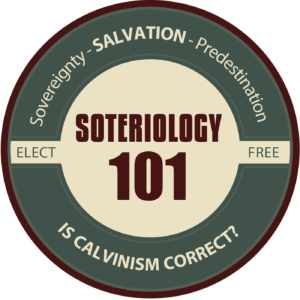This is part 4 of our Foreknowledge and Free Will series. Last time Dr. Leighton Flowers of the Soteriology101 podcast laid out his commitment to both God’s complete knowledge of all future events as well as humanity’s ability to freely choose. Rather than explaining philosophically how that is possible, he suggested that we do not need to know “how” God does something in order to believe “that” he does it.
 In this episode, I ask him about one more Calvinistic text, Romans 9, before delving into a number of Open Theism texts to get his exegesis of these interesting passages, including Genesis 6.5; Isaiah 5.3-7; Jeremiah 7.31; and Psalm 106.23.
In this episode, I ask him about one more Calvinistic text, Romans 9, before delving into a number of Open Theism texts to get his exegesis of these interesting passages, including Genesis 6.5; Isaiah 5.3-7; Jeremiah 7.31; and Psalm 106.23.
—— Books ——
- Consolation of Philosophy by Boethius on internet archive and on amazon
- Problem of Pain by C. S. Lewis
- The Potter’s Promise by Leighton Flowers
- God’s Provision for All by Leighton Flowers
—— Links ——
- See other episodes in this series on Foreknowledge and Free Will
- Soteriology101 Podcast: YouTube, RSS, Apple, Stitcher
- YouTube debate: Romans 9, James White vs. Leighton Flowers
- Purchase Flowers’ class, “Tiptoeing through TULIP,” a six-week study on the doctrines of human responsibility and God’s saving grace ($39)
- Check out the affirmations and denials about the provisionalist soteriology








Since I was raised attending Presbyterian churches, I do not need a refresher course in Calvinism. What I fail to understand is how this discussion promotes obeying the Lord Jesus Christ, especially in view of these and more:
Colossians 2:8 See to it that no one takes you captive through philosophy and empty deception, according to the tradition of men, according to the elementary principles of the world, rather than according to Christ. NASB
1 Corinthians 2:6-16
6 Yet we do speak wisdom among those who are mature; a wisdom, however, not of this age, nor of the rulers of this age, who are passing away; 7 but we speak God’s wisdom in a mystery, the hidden wisdom, which God predestined before the ages to our glory; 8 the wisdom which none of the rulers of this age has understood; for if they had understood it, they would not have crucified the Lord of glory; 9 but just as it is written,
“Things which eye has not seen and ear has not heard,
And which have not entered the heart of man,
All that God has prepared for those who love Him.”
10 For to us God revealed them through the Spirit; for the Spirit searches all things, even the depths of God. 11 For who among men knows the thoughts of a man except the spirit of the man, which is in him? Even so the thoughts of God no one knows except the Spirit of God. 12 Now we have received, not the spirit of the world, but the Spirit who is from God, that we might know the things freely given to us by God, 13 which things we also speak, not in words taught by human wisdom, but in those taught by the Spirit, combining spiritual thoughts with spiritual words. 14 But a natural man does not accept the things of the Spirit of God; for they are foolishness to him, and he cannot understand them, because they are spiritually appraised. 15 But he who is spiritual appraises all things, yet he himself is appraised by no man. 16 For who has known the mind of the Lord, that he should instruct Him? But we have the mind of Christ. NASB
The 3 philosophies under discussion include such traditions of men as the immorality of the human soul, righteous dead in heaven, and unrighteous dead in eternal torment in hall all of which were culled from Plato. Then there is the doctrine of the Trinity, which contradicts Scripture.
Jesus said, if we love him then we will obey him, which means to love your neighbor as yourself, treat others as you want to be treated, and to love your enemies and pray for those who persecute you. Hebrews teaches us:
Hebrews 5:9-10
And having been made perfect, He became to all those who obey Him the source of eternal salvation, 10 being designated by God as a high priest according to the order of Melchizedek. NASB
How do any of these philosophies promote this?
I liked his explanation of Arminianism and I can agree with many points.
Dr.. Flowers had made the comment about interpreting scriptures by looking at the simplest explanation especially when the calvanist try to support their philosophy however it seems he did the same thing when trying to explain Moses interceding and God changing His mind. I guess looking at who this scripture was written too and what they would have been thinking paints a different picture.
I know I’m commenting much later, but… I have never even thought about the possibility that God could not see the future until someone brought up Open Theism to me. I think I’ve always been Arminian or I have viewed God as not seeing every little detail of the future but that He can choose to know the future. So He could choose to see the future or He could choose not to see the future on certain subjects… Is there a middle ground view like this? It seems the most consistent with Scripture. Sometimes God’s surprised but other times He has the future events detailed such as Psalm 22 with Jesus’ crucifixion and Daniel’s prophecy.. I don’t see how God could say everything that would happen in detail like that unless He controlled everyone like robots to make it happen. (Which He does not do!) Is there a name for the view that God can choose not to know something?